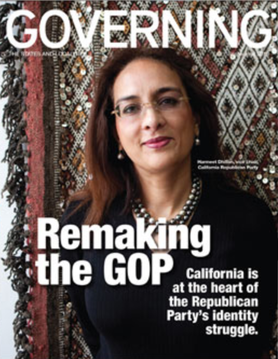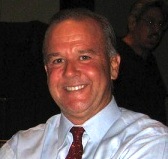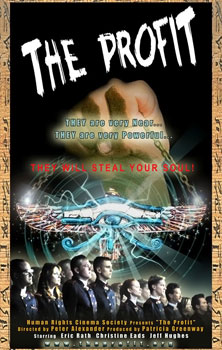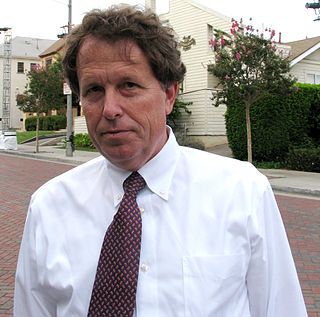
The Church of Scientology has been involved in court disputes in several countries. In some cases, when the Church has initiated the dispute, questions have been raised as to its motives. The Church of Scientology says that its use of the legal system is necessary to protect its intellectual property and its right to freedom of religion. Critics say that most of the organization's legal claims are designed to harass those who criticize it and its manipulative business practices.

The Church of Scientology maintains a wide variety of beliefs and practices. The core belief holds that a human is an immortal, spiritual being (thetan) that is resident in a physical body. The thetan has had innumerable past lives, some of which, preceding the thetan's arrival on Earth, were lived in extraterrestrial cultures. Based on case studies at advanced levels, it is predicted that any Scientologist undergoing auditing will eventually come across and recount a common series of events.

The Tampa Bay Times, called the St. Petersburg Times until 2011, is an American newspaper published in St. Petersburg, Florida, United States. It has won fourteen Pulitzer Prizes since 1964, and in 2009, won two in a single year for the first time in its history, one of which was for its PolitiFact project. It is published by the Times Publishing Company, which is owned by The Poynter Institute for Media Studies, a nonprofit journalism school directly adjacent to the University of South Florida St. Petersburg campus.

Governing is a website, edited and published in Washington, D.C., that covers state and local government in the United States. Originally a national monthly magazine, it was published in print from 1987 to 2019. It covers policy, politics, and the management of government enterprises. Its subject areas include government finance, land use, economic development, the environment, technology, and transportation.

David Miscavige is the leader of the Church of Scientology. His official title within the organization is Chairman of the Board of the Religious Technology Center (RTC), a corporation that controls the trademarks and copyrights of Dianetics and Scientology. He is also referred to within the Scientology organization as "Captain of the Sea Org".

Study Technology, also referred to as study tech, is a teaching methodology developed by L. Ron Hubbard, founder of the Church of Scientology. Study Technology is used by Scientologists as part of their training, and is also promoted outside the church by the affiliated corporation Applied Scholastics, which presents Study Tech as a secular, universally applicable method to enhance the comprehension of any student, studying any topic. However, the method has many critics, including former teachers, claiming that the "technology" and associated schools are intrinsically linked with religious aspects of Scientology.

The term Fair Game is used to describe policies and practices carried out by the Church of Scientology towards people and groups it perceives as its enemies. Founder of Scientology, L. Ron Hubbard, established the policy in the 1950s, in response to criticism both from within and outside his organization. Individuals or groups who are "Fair Game" are judged to be a threat to the Church and, according to the policy, can be punished and harassed using any and all means possible. In 1968, Hubbard officially canceled use of the term "Fair Game" because of negative public relations it caused, although the Church's aggressive response to criticism continued.

The Church of Scientology is a group of interconnected corporate entities and other organizations devoted to the practice, administration and dissemination of Scientology, which is variously defined as a cult, a business, or a new religious movement. The movement has been the subject of a number of controversies, and the Church of Scientology has been described by government inquiries, international parliamentary bodies, scholars, law lords, and numerous superior court judgements as both a dangerous cult and a manipulative profit-making business. In 1979, several executives of the organization were convicted and imprisoned for multiple offenses by a U.S. Federal Court. The Church of Scientology itself was convicted of fraud by a French court in 2009, a decision upheld by the supreme Court of Cassation in 2013. The German government classifies Scientology as an unconstitutional sect. In France, it has been classified as a dangerous cult. In some countries, it has attained legal recognition as a religion.

Mark C. "Marty" Rathbun is a former senior executive of the Church of Scientology who last held the post of Inspector General of the Religious Technology Center (RTC), the organization that is responsible for the protection and enforcement of all Dianetics and Scientology copyrights and trademarks.
Don Pearson is Vice President of Sales and Marketing for Inductive Automation, a supplier of web-based industrial automation software based in Folsom, California. He was formerly a management consultant and executive for the Folsom, California publishing company, e.Republic. Pearson is perhaps best known for his role in training Allstate Insurance Company managers and salesmen in the tenets of L. Ron Hubbard's 'management by statistics' during the late 1980s and early 1990s. Pearson also set up a political action committee called the Association of Citizens for Social Reform, the aim of which was to eliminate public support for mental health programs not approved of by Scientology.

The Flag Building, also referred to as the Super Power Building, is the largest building in Clearwater, Florida. It is owned by the Church of Scientology and was built principally to deliver the Super Power Rundown, a high-level Scientology training course intended to train Scientologists to use what Scientology describes as all of their 57 "perceptics" or senses. The interior of the building contains training suites, course rooms, theaters and various devices intended to test these "perceptics," including a "time machine", an anti-gravity simulator, an "infinite" pit, and a pain station.
Bennetta Slaughter is the owner of 24Seven Media group, an advertising and marketing company based in Memphis TN.

This is a Timeline of Scientology, particularly its foundation and development by author L. Ron Hubbard as well as general publications, articles, books and other milestones.
OT VIII or OT 8 is the highest current auditing level in Scientology. OT VIII is known as "The Truth Revealed" and was first released to select high-ranking public Scientologists in 1988, two years after the death of Scientology's founder, L. Ron Hubbard. OT VIII is only delivered to members of the Church of Scientology in one place—aboard the organization's private cruise ship, the Freewinds, and is additionally available from independent Scientology groups. There are a few advanced auditors that are able to deliver the level to those who meet the prerequisites.

The Profit is a feature film written and directed by Peter N. Alexander. The film premiered at the Cannes Film Festival in France in 2001. Distribution of the film was prohibited by an American court order which was a result of a lawsuit brought by the Church of Scientology, although the filmmaker says that the film is not about Scientology. As a result, The Disinformation Book Of Lists and The Times have characterized The Profit as a banned film in the United States.

Shawn Lonsdale was a videographer and prominent critic of the Church of Scientology. He resided in Clearwater, Florida, and regularly videotaped members of Scientology coming and going from church activities in Clearwater. Lonsdale had initially intended to do a photography project on homeless people in Clearwater, but after an experience at a City Council meeting, he began to research Scientology. Lonsdale got into an argument with a Scientologist at the City Council meeting, and the Scientologist followed him home and the next day Lonsdale observed a van waiting for two hours outside his home. After researching the Church of Scientology on critical websites, he decided to expose information about the organization. He established a website, and filmed video footage of Scientologists going about activities in Clearwater, and aired edited footage on a local Public-access television cable TV station. After getting into a physical altercation with a Scientologist while filming, the Scientologist was arrested and charged with misdemeanor battery, but was later released and the charges were dropped.
Leisa Goodman is an American official of the Church of Scientology. As of 2005, she served as the Human Rights Director for the Church of Scientology International. She had previously served as a spokesperson for the Church and served as its media relations director.
Scientology in the United Kingdom is practised mainly within the Church of Scientology and its related groups which go under names including "Hubbard Academy of Personal Independence" and "Dianetics and Scientology Life Improvement Centre". The national headquarters, and former global headquarters, is Saint Hill Manor at East Grinstead, which for seven years was the home of L. Ron Hubbard, the pulp fiction author who created Scientology. In the 2021 census, there were 1,844 individuals in England and Wales who listed themselves as Scientologists in their census returns, almost half of which lived in the area around East Grinstead in West Sussex, which hosts the British Scientology Headquarters at Saint Hill Manor. This is a decline of just under a quarter since census day, 2011.

Kendrick Lichty Moxon is an American Scientology official and an attorney with the law firm Moxon & Kobrin. He practices in Los Angeles, California, and is a lead counsel for the Church of Scientology. Moxon received a B.A. from American University in 1972, and a J.D. degree from George Mason University in 1981. He was admitted to the Washington, D.C. bar association in 1984, and the State Bar of California in 1987. Moxon's early work for the Church of Scientology involved legal affairs, and he also held the title of "reverend". He worked out of the Scientology intelligence agency known as the Guardian's Office (GO), and was named as an unindicted co-conspirator after the Federal Bureau of Investigation's investigation into criminal activities by Scientology operatives called "Operation Snow White". An evidence stipulation in the case signed by both parties stated he had provided false handwriting samples to the FBI; Moxon has since said that he did not "knowingly supply" false handwriting samples.










